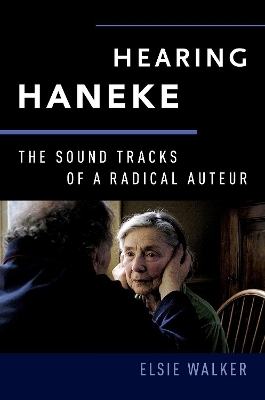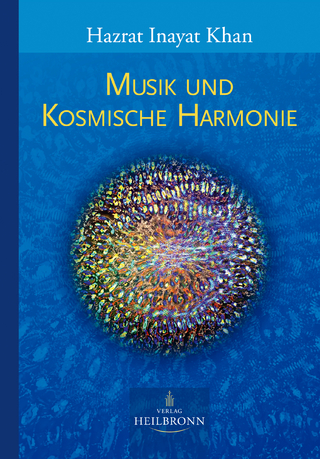
Hearing Haneke
The Sound Tracks of a Radical Auteur
Seiten
2018
Oxford University Press Inc (Verlag)
978-0-19-049591-6 (ISBN)
Oxford University Press Inc (Verlag)
978-0-19-049591-6 (ISBN)
Hearing Haneke: The Sound Tracks of a Radical Auteur is the first book devoted to the sound tracks of Michael Haneke. Despite his notorious preoccupation with violence, this book shows how Haneke uses sound to reawaken our capacity for hearing the world with greater compassionate understanding.
Michael Haneke's films subject us to extreme experiences of disturbance, desperation, grief, and violence. They are unsoftened by music, punctuated by accosting noises, shaped by painful silences, and charged with aggressive dialogue. The sound tracks are even more traumatic to hear than his stories are to see, but they also offer us the transformative possibilities of reawakened sonic awareness. Haneke's use of sound redefines cinema in ways that can help us re-hear everything-including our own voices, and everything around us-better.
Though Haneke's films make exceptional demands on us, he is among the most celebrated of living auteurs: he is two-time receipt of the Palme D'Or at Cannes Film Festival (for The White Ribbon (2009) and Amour (2012)), and Academy Award winner of Best Foreign Language Film (for Amour), along with numerous other awards. The radical confrontationality of his cinema makes him an internationally controversial, as well as revered, subject. Hearing Haneke is the first book-length study of the sound tracks that define this living legacy.
This book explores the haunting, subversive, and political significance of all aural elements through Haneke's major feature films (dialogue, sound effects, silences, and music), all of which are meticulously conducted by him. Many critics read Haneke as coolly dispassionate about showing scenes of humanity under threat, but Hearing Haneke argues that all facets of his sound tracks stress humane understanding and the importance of compassion. This book provides exceptionally detailed analyses of all Haneke's most celebrated films: including The Seventh Continent, Funny Games, Code Unknown, The Piano Teacher, Caché, The White Ribbon, and Amour. The writing brings together film theory, musicology, history, and cultural studies in ways that resonate broadly. Hearing Haneke will matter to anyone who cares about the power of art to inspire progressive change.
Michael Haneke's films subject us to extreme experiences of disturbance, desperation, grief, and violence. They are unsoftened by music, punctuated by accosting noises, shaped by painful silences, and charged with aggressive dialogue. The sound tracks are even more traumatic to hear than his stories are to see, but they also offer us the transformative possibilities of reawakened sonic awareness. Haneke's use of sound redefines cinema in ways that can help us re-hear everything-including our own voices, and everything around us-better.
Though Haneke's films make exceptional demands on us, he is among the most celebrated of living auteurs: he is two-time receipt of the Palme D'Or at Cannes Film Festival (for The White Ribbon (2009) and Amour (2012)), and Academy Award winner of Best Foreign Language Film (for Amour), along with numerous other awards. The radical confrontationality of his cinema makes him an internationally controversial, as well as revered, subject. Hearing Haneke is the first book-length study of the sound tracks that define this living legacy.
This book explores the haunting, subversive, and political significance of all aural elements through Haneke's major feature films (dialogue, sound effects, silences, and music), all of which are meticulously conducted by him. Many critics read Haneke as coolly dispassionate about showing scenes of humanity under threat, but Hearing Haneke argues that all facets of his sound tracks stress humane understanding and the importance of compassion. This book provides exceptionally detailed analyses of all Haneke's most celebrated films: including The Seventh Continent, Funny Games, Code Unknown, The Piano Teacher, Caché, The White Ribbon, and Amour. The writing brings together film theory, musicology, history, and cultural studies in ways that resonate broadly. Hearing Haneke will matter to anyone who cares about the power of art to inspire progressive change.
Elsie Walker is Associate Professor of Film Studies at Salisbury University and author of Understanding Sound Tracks through Film Theory (OUP, 2015).
Prelude: Why does hearing Haneke's films matter?
1. Introduction: Hearing Haneke through the critical ruckus
2. The Seventh Continent: the noises of consumerism, the music of something more
3. Funny Games: amplifying violence, the violators, and the victims
4. Code Unknown: sonically representing social divisions, diversity, and hope
5. The Piano Teacher: musical beauty without transcendence
6. Caché: the postcolonial resonance of silences and saying "nothing"
7. The White Ribbon: hearing Symbolic oppression and the Real in rebellion
8. Amour: the screams of life answered with love
Works Cited
Index
| Erscheinungsdatum | 29.01.2018 |
|---|---|
| Reihe/Serie | Oxford Music/Media Series |
| Zusatzinfo | 69 screen stills |
| Verlagsort | New York |
| Sprache | englisch |
| Maße | 231 x 155 mm |
| Gewicht | 544 g |
| Themenwelt | Kunst / Musik / Theater ► Film / TV |
| Kunst / Musik / Theater ► Musik ► Musiktheorie / Musiklehre | |
| ISBN-10 | 0-19-049591-X / 019049591X |
| ISBN-13 | 978-0-19-049591-6 / 9780190495916 |
| Zustand | Neuware |
| Informationen gemäß Produktsicherheitsverordnung (GPSR) | |
| Haben Sie eine Frage zum Produkt? |
Mehr entdecken
aus dem Bereich
aus dem Bereich
Grundbegriffe, Harmonik, Formen, Instrumente
Buch | Softcover (2021)
Philipp Reclam (Verlag)
CHF 12,90


